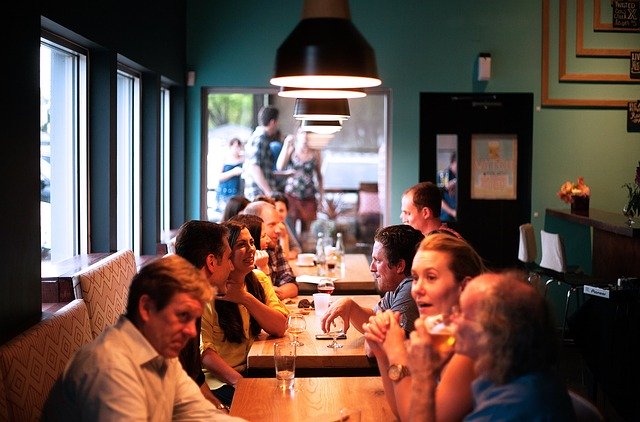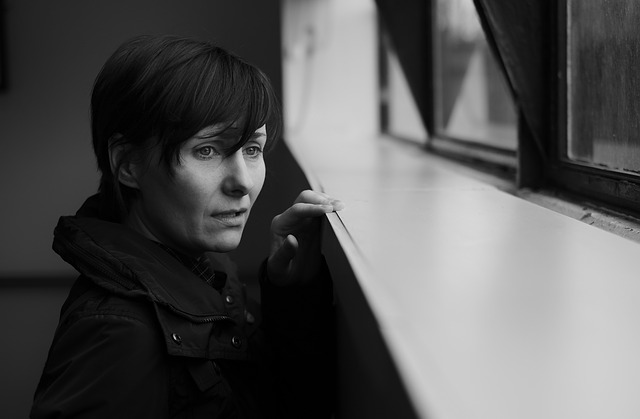
Can we grieve something like normality?
And what does normality even mean?
If in March of 2019 I had told you that a year from that time the world would be battling a pandemic, you would be under a social isolation order and had to wear face masks to go shopping, you would have probably told me I was nuts. Although there are plenty of movies that describe a similar situation, my generation at least, has not experienced a pandemic on this scale before.
It was hard for any of us to imagine how our lives have been impacted by the Covid-19 pandemic.
Sure, we have all been affected a bit differently. But no matter who you are, you’ve noticed the widespread closures, plastic cashier-guards, face masks and long lineups. You may be struggling with the loss of your job. And it might be difficult to organize food and basic necessities.
Normality changed rapidly
Life has changed in almost all facets of our lives. From how you do (or no longer do) your job, if you can see your family or friends. How and where you can go to be physically active and even if your favorite movie release was delayed until next year. Things are different, that’s for sure!
“The only way to make sense out of change is to plunge into it, move with it, and join the dance.”
- Alan Watts
And because our lives have changed so radically so quickly, we may be feeling some grief for the loss of normality. You might be feeling an unexplained emptiness. Or maybe a general anxiety and nervousness. Many people are feeling hesitant about the future and some feel an outright panic at everything that has happened. And as it is the case with grief, this will look different from person to person.

What is a loss of normality?
“Normal” is a different thing to everyone. But we all have our own routines and expectations of what comes next. Over time, we have grown used to a certain daily, weekly or monthly pattern. We are used to seeing certain people and traveling to certain places during our day. Generally, we are used to eating certain foods and doing certain activities on a regular basis. We make plans, we hang out with friends...this is our normal.

So when something like this happens and a lot of our patterns and routines are disrupted, we may feel that we have lost that sense or normality in our lives. This can be difficult, or even devastating to some individuals. And they might even feel a sense of grief over having lost what they were used to. Just like when you lose a loved one or a beloved pet, the sudden change can bring about a feeling of grief. This also happens during and after natural disasters, war, and if we go through a major health crisis.
When everything changes without warning, our safe place is ripped from us. In a way, we begin to float without a sense of safety, security, or direction. It is often unclear what the future will look like and some people might feel like there will be no future left to speak of. In addition to shock and fear, we can also experience a sense of disconnect from our reality.

Grieving is helpful
Grieving normality can occur whenever we experience a huge disruption in our lives, whether it be because of this pandemic, the loss of a loved one, or a terminal diagnosis. Any time our life is turned on its head, we may see certain reactions that are a natural part of grieving the loss of how things used to be.
Grief is a complex emotion that has several stages and manifests in many different ways in different people. Elisabeth Kübler-Ross proposed the stages of grief back in 1969 which include denial, anger, bargaining, depression and acceptance. Grief is not a tidy or linear process, and anyone can experience any stage at any time. We all go through it in our own way.

More recent research has also shown that grief may not follow these stages.
Some people skip stages or cannot feel any grief at all. Others may experience the stages and keep circling back through them. Grief is individual and so is grieving normality. Some days you might be positive about the future and what it holds. Other days may be difficult and you feel like you cannot go on.
The important part is that grief can be helpful during this pandemic. Grief allows you to acknowledge what you are feeling. Once you have acknowledged it, you can start to process your emotions and accept them. You can begin to assess your new situation and come to terms with how you will move forward. And this allows you to begin your healing journey.

Seeing these stages of grief in my own life
Through the recent changes to our lives, however, you can start to see how many of us (myself included) went through some or all of these stages in accepting the COVID-19 pandemic. When restrictions were first announced I really didn’t think I had to be that careful. I wasn’t ready to make all these sacrifices yet. I was in denial. But once the numbers started to be reported I started to understand how serious it was and how I had to do my part.
After a few days of getting used to social isolation and understanding the scope of how this would impact my life, I did start to feel some frustration and anger. No matter how selfish or ridiculous I knew that was. It felt frustrating to know there were so many things I couldn’t do. I couldn’t travel, couldn’t use the gym, couldn’t visit my friends and couldn’t go to my favorite restaurant. I knew that I was still lucky to be healthy… but at the same time, however irrational, I was mad. When looking at the stages of grief, I can see that this was perhaps part of the normal process of working through things.

Getting angry and bargaining
I have also found that I have had moments of trying to wiggle my way around restrictions. Thinking about whether I could just go out to visit one friend. Or go shopping for fun as long as I wear a mask. I was trying to force some kind of my old normal on a situation that just wasn’t normal. That was me, trying to bargain. I have also had very low days. Days where I struggled with how hard it has become to do my normal self care routine. I have had days where I just wanted to go to sleep and wake up in 2021 when this would (hopefully?) all be over.
Other days, I have found that I cooked something new to feel more positive. And I was proud that I was getting the hang of the best timing to avoid lineups at the grocery store. I have seen glimpses of depression and glimpses of acceptance and more positivity. And then I heard that the release of the new season of my show was indefinitely postponed. So, I was frustrated again. It’s a journey and we’re all going through it together.

Adapting to the new normality
Understanding that I have been grieving normality, and that that’s a normal and understandable response to what has been happening has definitely helped me during this time. We can all use this model to help us cope and sympathize with others. And as we move towards the goal of acceptance in these stages, we can all use a heavy dose of self care, whatever that may look like to you.

Try to stay connected to friends through phone calls and social media. And share with those you know will support you on this journey. Accepting the changes in our lives can be hard, but it helps to focus on what we can control, and just do what can, day by day. On this journey, it is normal to go forward two steps and back one or more. Healing will happen on your own schedule and at your own pace.
Creating new routines
As we learn and grow in this new situation, we will inevitably adapt and create new routines, things that become our “new normal”. I’ve already found myself bringing headphones to make the daily line-up easier. And I’m ordering my farmer’s market veggies online for delivery instead. I still grieve the fact that I won’t get handmade ice cream on my way to the veggie stand at the market. But the new routine works and it keeps me and everyone else safe.
I have found that understanding how and what I have been grieving has helped me understand my own feelings and moods in this time. It has also helped me recognize it in others around me, and find more love and patience when dealing with this new world. Nobody really knows the exact answer on how to handle this, but you can always be kind to others and understand it is affecting them just the same.

Constantly changing normality
Over the years, the constant in my life has always been “change”. Unsurprisingly, whenever I felt like I finally had a handle on something, everything would change or fall apart. Some of this change included my depression and trauma. Other times it was a change in my living circumstances, like moving to another country or changing jobs. I learned from a very young age that in order to survive I would need to become very adaptable.

Although this flexibility has served me well over the years, it has also caused some problems. Often, there was no time to be emotional. In many situations, I had to change, adapt, and overcome, without much thought to how I was feeling. The result was a long struggle with depression and anxiety without being able to find healing for a very long time. My flexibility came at a very high cost to myself.
I have found that going through the Covid pandemic has been a similar experience. And luckily, my past experiences have prepared me well for this situation. This is not to say that I didn’t struggle or didn’t have any bad days. But, overall, I think I was less impacted than many people I know. As the lockdown was announced and I started taking stock of the situation, I kicked into survival mode.
And that in itself is probably surprising, seeing that I struggled with depression for over two decades. In fact, I was worried that this Covid situation could be a slippery slope for me. I was concerned that having my normality changed again so rapidly could spark my depression. But, throughout this time, I have discovered that I am more resilient than I gave myself credit for. And, in my opinion, that’s because of two things.

The Takeaway
There are two things I wish I would have known a long time ago. The first I learned relatively quickly and early on. It is that change is inevitable. If you can prepare yourself for the fact that life constantly changes, you will find a changing normality much easier to deal with. This is not to say that you should anticipate negative change all the time.
Think of it more like understanding that you need to evolve with the changes that come into your life. Be creative, be open to new things, and trust yourself to be able to adapt. Many of us greatly underestimate what we are capable of. It is only in times of crisis that we often learn what we are truly made of.

Sure, there are times when you will doubt yourself. And there will be times when you are scared and anxious. That is all part of life. But what you know to be true without doubt is that change will come. Everyday is a little different than the day before. And sometimes there are big, life-changing changes that happen. If you can understand and accept that, you will find a change in your normality easier to process and you will thrive from it.
The other choice is to fight against it, live in fear of the next change that comes, and try to just survive from one day to the next. You will find this very tiring, draining, and it will make you question whether that is a sustainable way to live. And you may experience depression and anxiety as a result.
Finding healing
The second thing that I learned rather late is the importance of emotions. Because of trauma and depression, I was scared of my emotions for a very long time. I knew the power they held. Through depression, I understood that negative emotions really could bring me to the brink of what I could handle.
This is why I ignored my emotions for a long time. I stuffed them in a box, locked it, and threw away the key.
And this is exactly why grieving the loss of your normality is so important. Ignoring and cutting off my emotions kept me from processing change and coming to terms with that change. It also prevented me from healing. I thought that emotions were a bad thing and that they could cause all sorts of problems.

It was not until I was able to grieve and actually face my emotions that healing began. And of course with that, your normality will change. You will grow and expand. Over time, you will see things differently and approach situations differently. And that is a good thing. Through grieving and acknowledging your emotions, you will be much better prepared for any changes coming your way.
Don’t mistakenly think that change does not bring a whole wave of different emotions with it. You have already seen this with the Covid pandemic. And if you are not prepared and ready to center within yourself, this wave will drown you each and every time.
So, grieve the loss of your normality, heal, and embrace the positive things that change will bring you.
Sources
https://www.purdue.edu/caps/covid-19/adjusting-to-new-normal.html
https://psychcentral.com/lib/the-5-stages-of-loss-and-grief/
